
In BC, courts resolve all civil disputes between people.
Formal procedure. Lawyers in robes. Judges speaking in legalese. When people hear the word “court,” these images come to mind. In BC, many cases are still handled in these traditional settings. But many disputes can be officially resolved through more informal tribunals. Here, we’ll help you sort out which venue will handle which case, so that you can get started in the right place.
What you should know
There are Provincial Courts in more than 80 communities in British Columbia. Provincial Court has the following four main parts or divisions: criminal, traffic, family & youth, and small claims.
Criminal court deals with most crimes
Most people accused of a crime make a first appearance in criminal court. If the person is already in jail, a judge decides whether to release them on bail or keep them in jail until their trial. At the trial, a judge hears the case and determines whether the accused is guilty (there are no juries in Provincial Court). If they’re found guilty, a judge will then conduct a separate sentencing hearing.
While 95% of crimes are dealt with in Provincial Court, more serious crimes, like murder, might be decided in BC Supreme Court. The Provincial Court may hold a preliminary inquiry to decide if there's enough evidence to have a trial in Supreme Court. Juries are available only in the Supreme Court.
In any event, if you’ve been charged with a crime, there’s a lot to consider. This section of Dial-A-Law goes through many of the key issues.
Traffic court handles traffic, bylaw, and some other offences
If someone disputes a ticket for a driving offence (like speeding, distracted driving, or driving without insurance), a hearing will be set in traffic court.
This court also handles some issues under provincial laws, such as trespass or liquor offences, as well as bylaw offences like zoning and building code violations.
Family court handles family law cases
Parenting and guardianship, child and spousal support, and family violence cases can be dealt with in family court. Attitudes toward family law cases have been modernizing, with an emphasis on prioritizing early resolution (often out-of-court entirely). However, if you’re looking for a divorce, it has to be done in BC Supreme Court.
For more detail, see this information on family court.
Youth court handles criminal cases involving young people
Youth court handles criminal cases involving people aged 12 to 17. This page on youth justice trials explains more.
“I lent a friend some money last year. They ran into financial trouble. Eventually, they started avoiding me completely. So I decided to sue in small claims court. There was definitely paperwork to deal with, but a lot of it was easy to fill out — I didn’t need to use “legal” terms to describe my case. The court process did feel a bit formal (it was in the courthouse), but it wasn’t too daunting. All in all, I was happy with the outcome, and it wasn’t very stressful.”
– Sal, Burnaby, BC

In a civil case, one party in a conflict says they suffered loss as a result of conduct of another party. Examples include a contract dispute or a claim to recover a debt. In BC, most civil disputes worth between $5,000 and $35,000 go to small claims court. This is a division of BC Provincial Court.
There are some exceptions
Even if the value is between $5,000 and $35,000, some lawsuits don’t go to small claims. A few of the more common exceptions include the following:
car accident claims, which are now handled by the Civil Resolution Tribunal if the value is less than $50,000 (if you’re looking for information about car accident claims, we have step-by-step guidance)
strata disputes, which are also handled by the Civil Resolution Rribunal
wills and estates issues, which get handled in BC Supreme Court
anything to do with an interest in land also goes to BC Supreme Court
Here is more on matters small claims can’t deal with.
Waiving part of a claim to bring it within the small claims limit
Another important thing to note — if you’re owed more than $35,000, you can still bring your lawsuit in small claims. It’s just that the court won’t be able to award you more than $35,000. But it could be worth it to forgo some of your claim for the relative ease of the forms and procedure of small claims court (as compared to BC Supreme Court).
Starting a small claims action
To get started in small claims court, one party files court documents and lets the other party know about it. The other party then has a time frame to respond and file documents to put forward their own position. If the parties can’t settle their case, it goes to trial, where each side presents evidence and the court decides the outcome of the case. For more, see our coverage of small claims court.
“We got into a car accident. Thankfully nobody was badly injured, but the car was totalled. Who was responsible for the accident wasn’t clear cut, but given how it happened, I was sure it wasn’t my fault. ICBC disagreed — they took the side of the other driver, which would have resulted in a very expensive renewal of my insurance premiums. Even after they reviewed it a second time, ICBC still disagreed with me. So I took my case to the Civil Resolution Tribunal. The process was easy and accessible, start to finish.”
– Andrea, Langford, BC

For disputes under $5,000, you’re most likely headed to the Civil Resolution Tribunal. This tribunal operates fully online. It handles claims under $5,000 except where the dispute is considered too complex or deals with subject matters like land or estates (which have to be dealt with in BC Supreme Court; see below for more).
In addition, the Civil Resolution Tribunal also has jurisdiction over some types of claims above $5,000, like:
motor vehicle accident claims up to $50,000
claims about intimate images shared without your consent
strata issues
claims relating to BC societies and co-operatives
We know, we know, you’re probably thinking “it would be alot easier if they just divided up the courts by dollar amounts, no matter what the subject matter.” We hear you. It’s a bit of a patchwork. But it might just lead to better access to justice in sending certain popular claims through a more modernized system like the Civil Resolution Tribunal.
Applying to make a claim before the tribunal is easy. It all starts via their website, where you can also access solution explorers that vary depending on the type of claim. You might want to consult a colleague (or a lawyer) for help, but it isn’t necessary. The tribunal is designed for anyone to be able to handle a claim start to finish.
“Somebody was posting repeated negative reviews about my business online. I could tell it was the same person, from different accounts. It really hurt my foot traffic, and most of the posts were complete lies. I managed to figure out the name and address of this 'reviewer,' but they refused to back down or negotiate with me. So I sued them. I had to go to BC Supreme Court. I got a lawyer involved; they agreed to do the work on contingency. Everything felt very formal, and the outcome would have a huge impact on my business, so I was happy to have a professional involved.”
– Siobhan, Delta, BC

BC Supreme Court handles both criminal and civil cases. The most serious criminal trials are heard here, such as those involving murder.
For civil cases, BC Supreme Court hears claims for more than $35,000.
It also handles disputes for less than that where the law requires the matter to be brought in BC Supreme Court. Here’s a list:
an order for divorce or division of family property
an order for an injunction
an order relating to a bankruptcy
an order relating to personal property security
a dispute involving a will or estate, including probating a will
a dispute over an interest in land, including a builders lien claim
a defamation lawsuit
a trademark infringement lawsuit (this type of claim can also be brought in Federal Court)
Trials in Supreme Court can be in front of a judge or a judge and jury. But they’re typically just in front of a judge.
BC has several Supreme Court “resident” judges. These judges also travel to other places throughout BC to hold trials. Cases in Supreme Court are usually complicated, so most people use lawyers, but they don’t have to.
BC Supreme Court also hears appeals of some Provincial Court decisions.
The BC Court of Appeal is the highest court in BC. It doesn't hold trials. Instead, this court reviews decisions of trial courts if any of the people in a case disagree with the decision and appeal it. It hears appeals of civil and criminal cases from BC Supreme Court. The court of appeal also hears appeals of some criminal cases from Provincial Court.
Decisions appealed from tribunals (as explained below, these are specialized decision-makers that handle specific areas of the law) don’t typically go to the Court of Appeal — the BC Supreme Court handles these.
The Court of Appeal is in Vancouver, but it also travels to Victoria, Kamloops and Kelowna to hear cases.
There are two federal courts in Canada: the Federal Court and the Supreme Court of Canada.
The Federal Court has two parts and deals with federal laws, like Indigenous issues, maritime law, and immigration issues.
It consists of the Federal Court, which is a trial court, and the Federal Court of Appeal. The Federal Court holds trials for cases where the federal government is being sued or the dispute deals with federal laws. The Federal Court of Appeal hears appeals of decisions by the Federal Court.
The Supreme Court of Canada is the highest court in the country. Based in Ottawa, it hears appeals from decisions of the BC Court of Appeal, from the appeal courts of other provinces, and from the Federal Court of Appeal. Usually, the Supreme Court must agree to hear an appeal — and it doesn't agree to hear every appeal that people request. In some cases, the right to appeal is automatic. Until recently, people often had to go to the court in Ottawa, but now the court hears some appeals by a live video link to a court in Vancouver.
“I was renting a trailer on somebody’s property. One day, I came back from work to see that the locks had been changed and that some of my tools that I stored behind the trailer in a shed were no longer there. The owner said they had the right to evict me with no notice. A friend of mine told me that I should sue them through the Civil Resolution Tribunal. Turns out I need to do it through the Residential Tenancy Branch. It was a bit of a headache finding the right venue, but once I did, the process went quite quickly, and the forms weren’t too hard to fill out.”
– Alfred, Nanaimo, BC

Residential Tenancy Branch
Common cases here focus on evictions or on tenant issues with landlords (like unsafe premises or refusal to upkeep or repair). The forms and procedure during hearings are more streamlined than in court. Sometimes people are represented by lawyers, but often they aren’t. Cases can be decided fairly quickly here if there is urgency.
BC Human Rights Tribunal
The BC Human Rights Tribunal handles complaints related to discrimination, which is when you’re treated differently based on a protected characteristic (like race or gender). You start by filling out a complaint form, and then attending a hearing where an adjudicator will hear your complaint, the other side’s response and review your evidence.
Don’t expect a quick outcome here. Complaints can take a long time to deal with (often, between two and four years). That’s because the tribunal gets a lot of claims, which go through a screening process to ensure they’re properly suited to be brought before the tribunal. Get more details on making a human rights complaint here.
Employment Standards Branch
This is a provincial government office that helps workers and employers resolve problems. Most workers can file complaints here, but some can’t (like contractors or certain folks in unionized settings). You fill out a complaint form, await a hearing, and are often steered toward mediation. There a neutral third party helps you and your employer reach a compromise on the issue you’re complaining about. If this doesn’t work, you’d have a hearing with an adjudicator.
Other tribunals
The four tribunals mentioned above handle a good chunk of everyday legal problems. There are others that handle more niche issues. For a full list, see this list of tribunals.
Appealing a tribunal decision
Each tribunal has its own forms and internal process if you’d like to appeal their decision. Appeals are not easy. There often has to be an issue of unfairness or a serious error in the law for an appeal to be successful. Sometimes, even if you lose an appeal, you may be able to appeal further to the BC Court of Appeal.
Common questions
This depends on the court or tribunal. Unfortunately there’s no one-size-fits-all form for lawsuits. Check out how to bring a lawsuit for more guidance.
All courtrooms are normally open to the public, so you can attend and watch. You can walk in and no one will ask you what you’re doing, so long as you’re quiet and don't disturb the proceeding. Some high-profile trials (such as widely publicized murder trials or gang trials) are not completely open to the public. Their attendance is intensely screened.
Going to court is one way to resolve a dispute. But there are other ways that can be cheaper, faster, and more effective. Learn about options for “alternative dispute resolution”.
Who can help
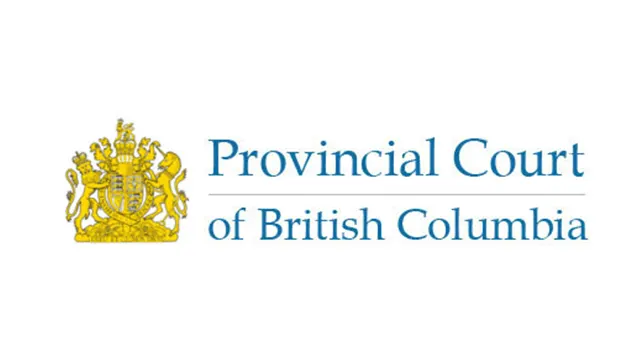
BC Provincial Court
The court's website features guides on how to handle a case before the court, as well as past court decisions.
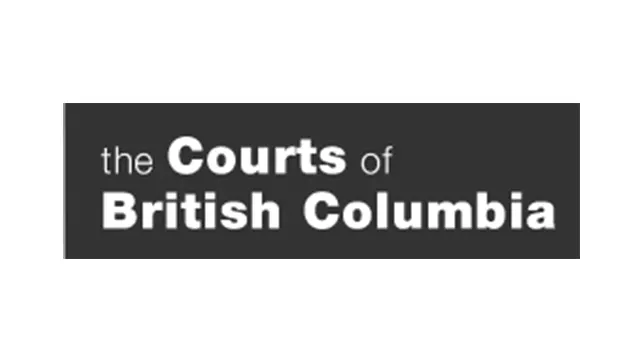
BC superior courts
Information for BC Supreme Court and BC Court of Appeal, including information for those representing themselves before those courts.
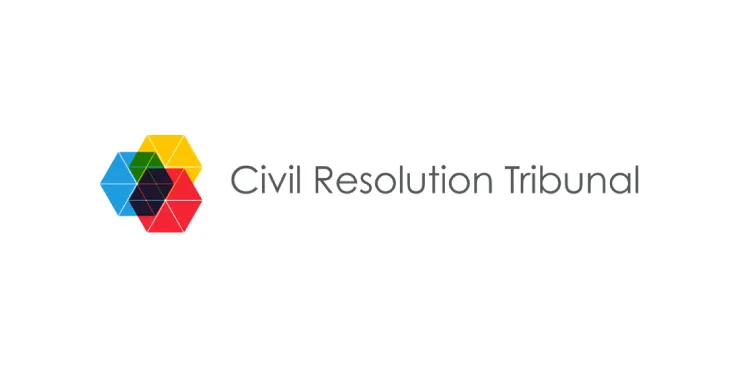
Civil Resolution Tribunal
Resolve disputes of less than $5,000 (and some other types of disputes) online 24/7 and without the need for a lawyer.
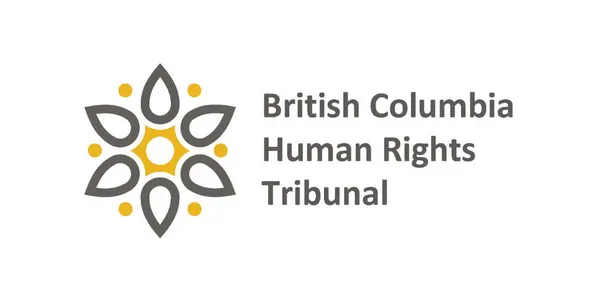
BC Human Rights Tribunal
Receives and resolves discrimination complaints under BC law.
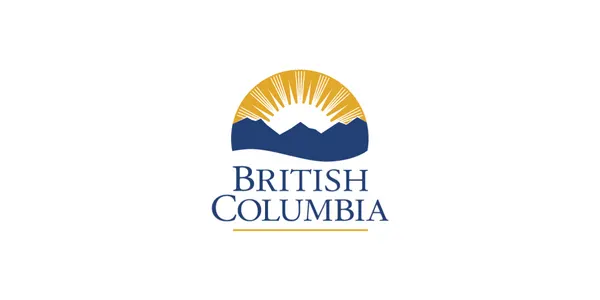
Residential Tenancy Branch
BC government agency that helps tenants and landlords resolve problems.

Employment Standards Branch
BC government office that deals with complaints against employers and farm labour contractors.

